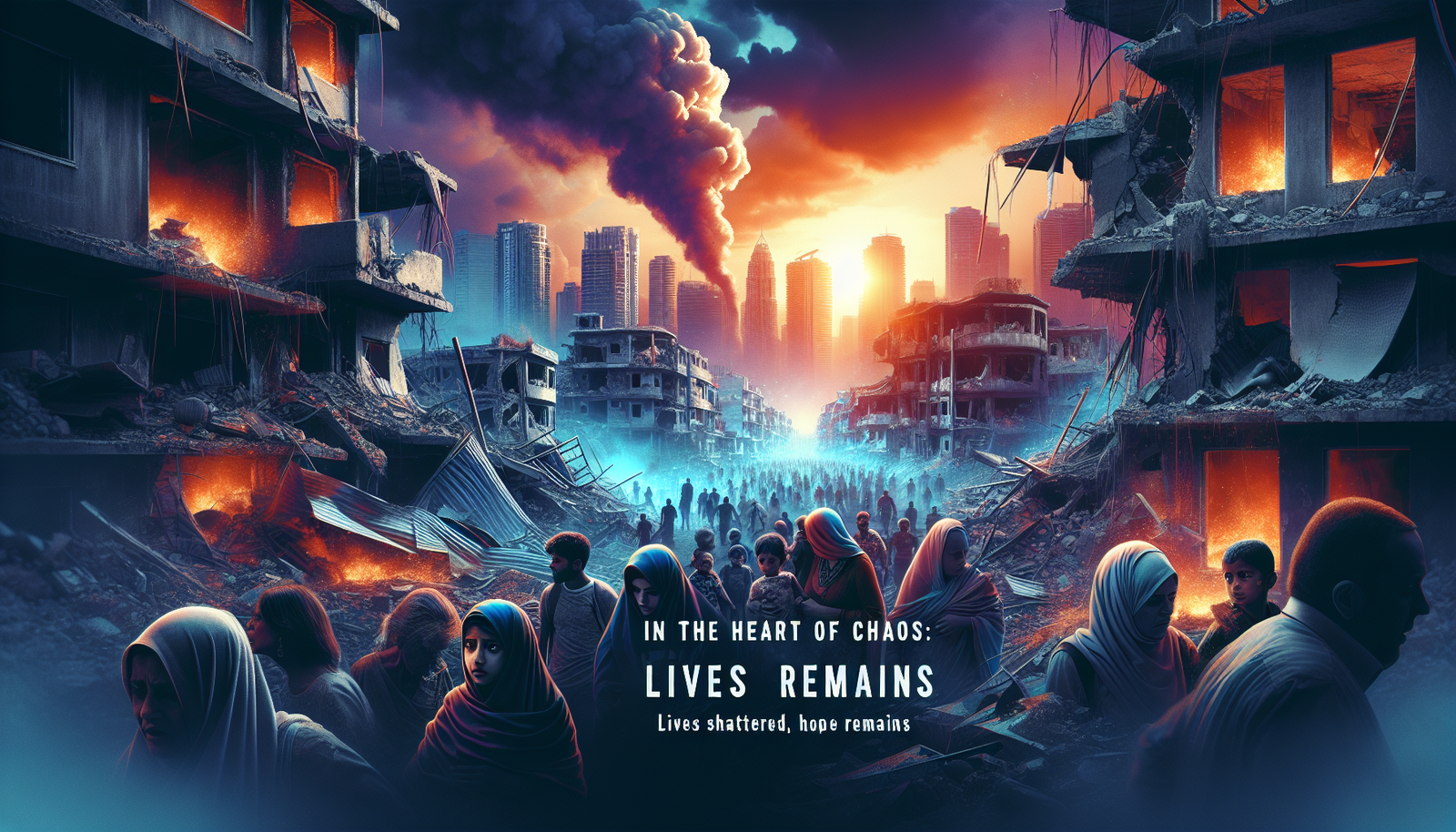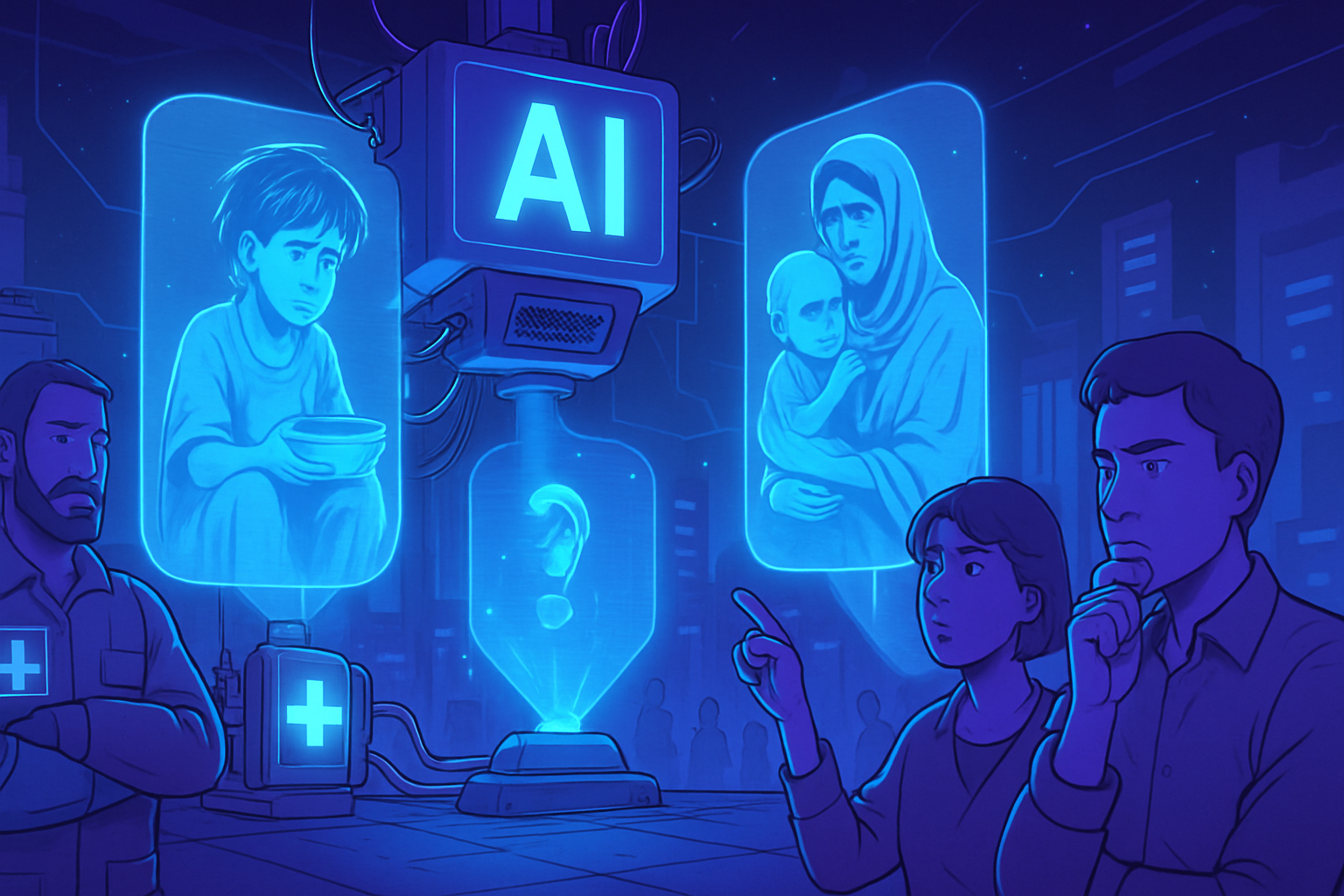The repercussions of the conflict between Israel and Hamas in Gaza are felt both locally and internationally. *The violence has exacerbated political and social tensions, creating a climate of widespread anxiety.* Children, often the first victims, suffer trauma and deprivation in a backdrop of relentless war. *The alarming increase in antisemitic incidents in France reflects the global consequences of this crisis.* Elections, financial markets, and diplomatic relations are also affected, revealing the interconnectedness of contemporary geopolitical issues. *A careful examination of these intertwined dynamics is necessary.*
The Violence and Human Consequences
The current conflict between Israel and Hamas has caused a true humanitarian tragedy. The attacks of October 7 have injured more than 5,400 people and claimed the lives of *over 1,200 individuals*, including 37 children. In light of this tragic toll, civilians find themselves trapped in a spiral of violence that shows no signs of easing. The figures reflect an alarming mortality rate, exacerbated by the precarious situation in which the inhabitants of Gaza live.
Impact on Gaza: Destruction and Insecurity
The Israeli response has caused massive destruction in the Gaza Strip. Essential infrastructure, such as hospitals and water supply systems, is severely damaged. This situation only exacerbates shortages of electricity and drinking water, directly affecting the public health of Gaza residents. High unemployment is settling in, creating a climate of uncertainty for young graduates.
Geopolitical Consequences
The repercussions of the conflict extend beyond local confines, impacting the global geopolitical stage. Israel is experiencing a *triple crisis*. The *trauma* from October 7 continues to affect Israeli society, while demonstrations in support of Palestine multiply worldwide. Meanwhile, tensions are rising among nations taking positions on this conflict, thereby weakening alliances and provoking repercussions on international trade.
Antisemitism and Social Climate
In the wake of recent events, France has recorded *a concerning number* of *antisemitic* incidents in the three weeks following the Hamas attack. Acts of violence and discrimination against the Jewish community are on the rise, leading to a climate of fear and concern. This phenomenon illustrates how a local conflict can exacerbate social tensions on an international scale.
The Role of the UN
The action of the UN proves crucial, albeit challenging. The entry of humanitarian aid into Gaza remains extremely restricted. Before hostilities began, nearly 500 trucks were supplying essential resources. The current situation makes the delivery of humanitarian aid nearly impossible, further worsening the humanitarian crisis. The role of international organizations becomes vital, yet often limited.
Economic Repercussions
Financial markets react violently to the escalation of the conflict. The prices of oil and gold are skyrocketing, signaling investor concern over instability. The risks of a global economic slowdown are ever-present, threatening lasting consequences for trade and the global economy.
Prospects of an Uncertain Future
The children of Gaza are particularly affected by this never-ending war. They are witnesses to destruction and suffering, and their future is at risk. The resources necessary for their education and well-being are severely impacted. The absence of long-term political solutions, such as the two-state solution, makes the situation all the more desperate.
Technological Innovation and Conflict Resolution
Technological innovations, such as artificial intelligence, could potentially offer new perspectives for resolving this crisis. Some projects aim to model *the relationships between the conflicting parties*, seeking viable solutions through dialogue. Furthermore, studies are focused on using AI to develop peace strategies, as highlighted by the work on artificial intelligence in this context.
The immediate repercussions of the conflict between Israel and Hamas in Gaza are unprecedented in scale. Violence, human suffering, and geopolitical impacts shape a reality that requires attention and collective action to prevent an exacerbation of the crisis.
Frequently Asked Questions about the Immediate Repercussions of the Conflict between Israel and Hamas in Gaza
What are the immediate humanitarian consequences of the conflict in Gaza?
The conflict has resulted in a significant number of casualties and injuries among the civilian population. Medical infrastructure is severely affected, making access to healthcare extremely difficult. Shortages of food, drinking water, and electricity worsen the humanitarian situation.
How does the conflict affect security in Israel?
In Israel, Hamas attacks have caused a rise in fears and tensions. The population lives under the constant threat of rockets, and psychological trauma affects many people, particularly children.
What economic impacts does the conflict have on the region?
The conflict disrupts trade exchanges and affects financial markets. The tourism and agriculture sectors, vital for local economies, suffer significant losses, which could lead to a prolonged economic crisis.
How does the conflict influence the situation regarding human rights?
Human rights violations, such as indiscriminate attacks on civilians and the detention of individuals, are increasing in the context of the conflict. This situation raises international concerns regarding the treatment of affected populations.
What is the impact of the conflict on the children of Gaza?
Children are particularly vulnerable in this conflict. They are exposed to psychological trauma, family losses, and precarious living conditions, impacting their development and overall well-being.
What measures is the international community taking to respond to the current crisis?
The international community, through the United Nations and other agencies, is calling for humanitarian ceasefires and is working to provide humanitarian aid and medical care to those affected by the conflict.
Are the repercussions of the conflict felt beyond the Middle East region?
Yes, the repercussions transcend borders. Incidents of violence and resentments are intensifying in other regions, including Europe and North America, where community tensions are emerging, exacerbated by political polarization.






